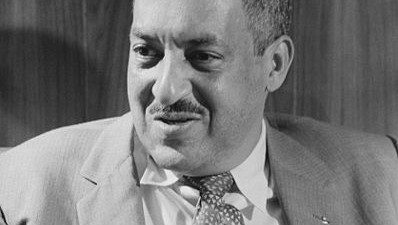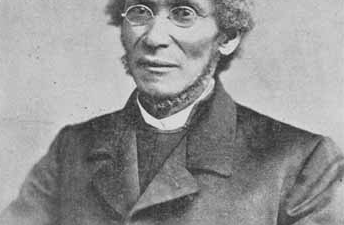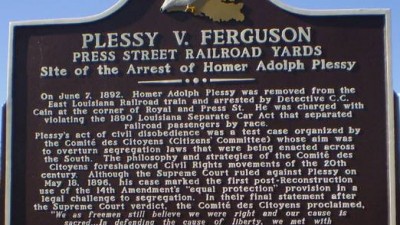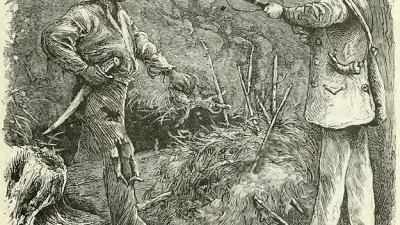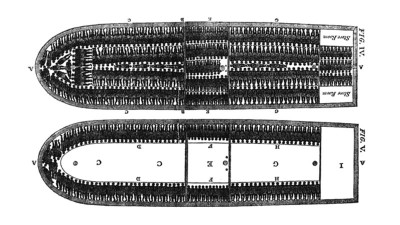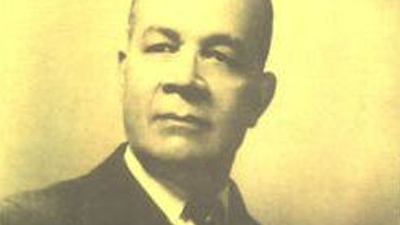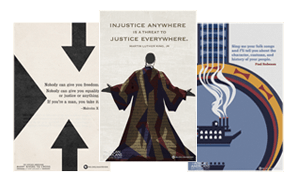TAG: J.A. Rogers
What Was the Civil Rights Movement?
A silly question, right? I thought so, too, until I learned that in the year 2010, only 2 percent of 12th graders received full credit in identifying the following quote on the National Assessment of Educational Progress U.S. History Exam: ” … Separate education facilities are inherently unequal.” The 12,000 students tested didn’t need to come up with the name Brown v. Board of Education, mind you — just know it had something to do with 1.) segregation 2.) in the nation’s schools — yet a stunning 73 percent either skipped it or received an “inappropriate” score. Continue reading
Free Blacks Lived in the North, Right?
Most of us know that before the American Civil War there were so-called slave states and free states. Knowing this, our minds fill in the map with logic. If such a line as “Mason-Dixon” existed (actually, there were a series of lines drawn by “compromising” Congresses throughout the first half of the 19th century), slaves must have resided below it and free black people above it, with every man, woman and child in chains trying to escape to the North just as soon as they could — following the proverbial North Star to a new life of unbounded opportunity — while those already up there remained vigilant against being kidnapped back into slavery down in the South. Continue reading
‘Plessy v. Ferguson’: Who Was Plessy?
‘How many mysteries have begun with the line, “A man gets on a train … “? In our man’s case, it happens to be true, and there is nothing mysterious about his plan. His name is Homer Plessy, a 30-year-old shoemaker in New Orleans, and on the afternoon of Tuesday, June 7, 1892, he executes it perfectly by walking up to the Press Street Depot, purchasing a first-class ticket on the 4:15 East Louisiana local and taking his seat on board. Nothing about Plessy stands out in the “whites only” car. Had he answered negatively, nothing might have. Continue reading
Did African-American Slaves Rebel?
One of the most pernicious allegations made against the African-American people was that our slave ancestors were either exceptionally “docile” or “content and loyal,” thus explaining their purported failure to rebel extensively. Some even compare enslaved Americans to their brothers and sisters in Brazil, Cuba, Suriname and Haiti, the last of whom defeated the most powerful army in the world, Napoleon’s army, becoming the first slaves in history to successfully strike a blow for their own freedom. Continue reading
How Many Slaves Landed in the U.S.?
Perhaps you, like me, were raised essentially to think of the slave experience primarily in terms of our black ancestors here in the United States. In other words, slavery was primarily about us, right, from Crispus Attucks and Phillis Wheatley, Benjamin Banneker and Richard Allen, all the way to Harriet Tubman, Sojourner Truth and Frederick Douglass. Think of this as an instance of what we might think of as African-American exceptionalism. (In other words, if it’s in “the black Experience,” it’s got to be about black Americans.) Well, think again. Continue reading
J. A. Rogers’ 100 Amazing Facts About the Negro
Henry Louis Gates, Jr. describes the man who inspired his 100 Amazing Facts About the Negro blog series. Continue reading
Find educational resources related to this program - and access to thousands of curriculum-targeted digital resources for the classroom at PBS LearningMedia.
Visit PBS Learning Media

